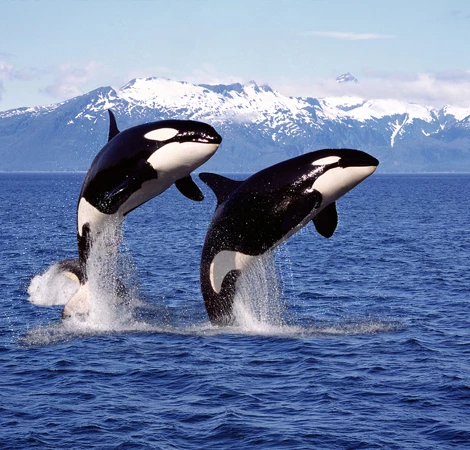Protecting the Orca

Only 73 orcas now swim off the Pacific Northwest coast, their numbers dwindled because of salmon overfishing. We don’t need to eat King Salmon. Orcas do.
The Issue
For decades, a wide range of human-caused and environmental factors have endangered Southern Resident Orca — with the community of orcas now classed as “endangered” under federal law. Only 73 are alive, and they are having difficulty meeting their basic caloric needs. It must be our shared goal to clear the way for Chinook to make it into the ocean so that a long-standing predator-prey relationship can continue.
The Business Case
Orcas, the largest member of the dolphin family, numbered in the hundreds in the region just years ago. Now, commercial fishing that targets their dietary staple — the King (or Chinook) salmon — is putting the animals at risk. These orcas rely almost exclusively on the Chinook, and that differs from other orca communities that rely principally on seals or whales.
The Solution
We are asking government agencies, consumers, and fishermen to join together to allow the orcas to meet their dietary needs. We hope that fisheries’ regulators and fishermen will do all they can to spare the orcas. But if not, then consumers must do their part and stop eating King Salmon until the runs are again abundant enough to support them. At this point, it’s a zero-sum circumstance for the orcas: more commercial fishing for Chinook means less for orcas. We can live without Chinook for a short time. The orcas cannot.
Your support of this campaign will create awareness among seafood diners and at the same time put pressure on bureaucrats and others who have the power to save the lives of these iconic oceanic predators These animals are at the center of the culture of the Northwest.
Actions to Take